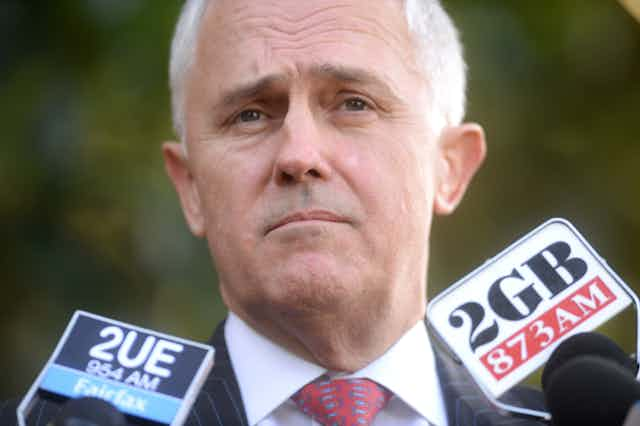As of last night both major Australian political parties can claim to have at one time backed and then rejected internet filters. Is this an epic win for netizens? Yes, for the battle against censorship; no for the larger war for comprehensive digital rights.
Liberal Party MP Paul Fletcher yesterday released The Coalition’s Policy to Enhance Online Safety for Children, which included a proposal for a UK-style mandatory opt-out Australia-wide internet filter.
At 5:30pm Malcolm Turnbull, apparently caught on the hop, defended the policy on Triple J’s Hack program:
What [our policy] does is essentially install that software either in the smartphone or in the modem as a default which you can switch off but then that’s at your call.
Then the internet exploded. Australian Twitter users took to the tweets and Facebook users set their statuses to stun. The backlash angrily denounced the filter as unwarranted censorship, as a chilling effect on free speech, but most damningly, apparently, to further slowing down the already likely slower speed of the Coalition’s proposed fibre to the node (FTTN) national broadband network.
While Mr Fletcher continued to argue for the value of a filter for reducing the confusion of filter choices, by 11pm the Coalition backflipped. Malcolm Turnbull lead the charge and took the fall in a number of tweets from his @TurbullMalcolm account, claiming it was a mistake and that the Coalition opposed filtering on principle.

Mr Turnbull also argued later that such that filters are unworkable. Tony Abbott agreed that it was a “failure of quality control” and that the Rudd government was the only government to support internet filtering.
The Coalition is still dealing with its error in the media this morning, pushing the “mistakes were made” angle, although the “administrative error” defence did not work very well for the Wikileaks party preferencing blunder earlier in the campaign.
The ALP tango
Mr Abbott’s claim that the Rudd government supported filtering was in reference to Steven Conroy’s long-standing attempt to bring internet filtering to Australia. Mr Conroy’s plan was vigorously opposed for several years by civil liberties groups such as Electronic Frontiers Australia (of which I am a board member) in its Open Internet campaign.
Such groups point to numerous reasons why such filters are unworkable (see our Internet Content Filtering and Blocking page and fact sheets).
Mr Conroy eventually backed down in November 2012.

The war is ongoing
Australia’s politicians will sashay away from unpopular individual policies - sometimes slowly, sometimes rapidly - but, as I have noted previously in this election, politicians and journalists have largely been silent on comprehensive policies for positive digital rights.
Both the ALP and the LNP policy announcements concentrate almost on the cost and aspirational benefits of their NBN infrastructure plans. As part of their official policy platforms documents, both The Greens and the Pirate Party Australia treat the NBN as necessarily also requiring a parallel commitment to a range of digital rights issues.
Electronic Frontiers Australia’s Election 2013 scorecard shows that only these two parties have a consistent positive position on surveillance, copyright and censorship.
Whatever the outcome of tomorrow’s election, yesterday’s filtering backflip by the Coalition is in large part due to the power of social media’s amplification effect when used by an angry populace. Elections may be the showcase event, but when it comes to digital rights they are no longer the only game in town.
Australians have an opportunity in the election, and the period immediately following, to move beyond negative reactions to individual digital policies and push towards lobbying whoever is in government for a considered holistic approach to our digital rights.

